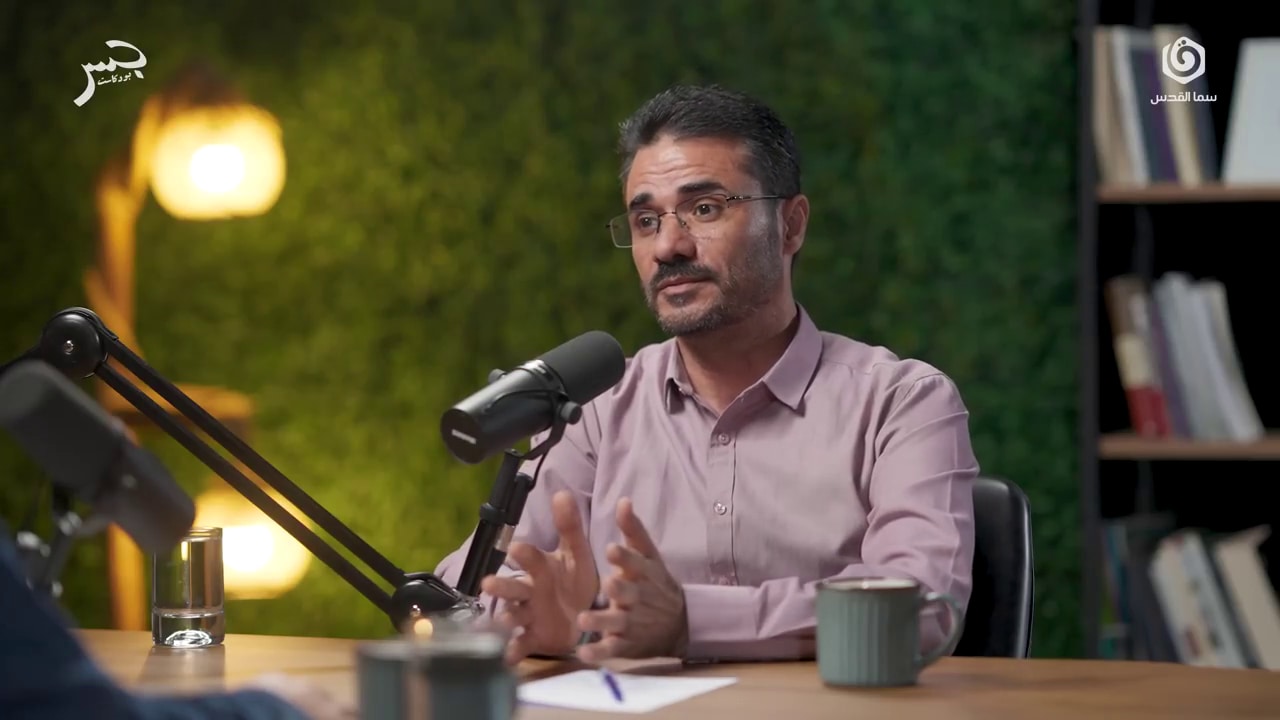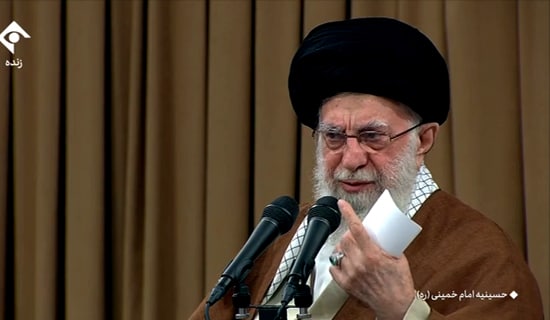
Al-Jazeera Network gained access to the U.S. Air Base at Ayn Al Asad in Iraq, in the aftermath of Iran's IRGC missile attack against the base on January 8, 2020. Osama Bin Javaid, a reporter with Al-Jazeera Network interviewed U.S. military personnel who were present in the base at the time of the attack. Joe Valdivia, a tower guard who was on watch at the time of the attack told Bin Javaid that he was scared and worried during the attack. Costin Herwig, a drone operator, told Bin Javaid that he heard of the imminent attack a few hours before it happened and was charged with keeping the drones off the ground during the attack. Bin Javaid said that "Iran-linked" Iraqi militias have warned that the attacks will continue until the foreign troops leave Iraq. Myles Caggins, Combined Joint Task Force spokesman said: "We are ready for these threats. We have taken action to prepare for these threats." Bin Javaid asked a group of U.S. troops what they were doing in Iraq if all operations against ISIS have stopped. A U.S. soldier answered that this question should be directed at the American leadership. The report included footage of the damage caused to the base following the attack. The report was aired on January 15, 2020 and additional footage of the destruction in the base was aired on January 17, 2020.
January 15, 2020
Osama Bin Javaid: "It's rare to be targeted by a ballistic missile and live to tell the tale. This is one of the seven damaged locations inside the Al-Asad base, currently home to around 2,000 U.S., Danish, Norwegian, Polish, and French troops. U.S. soldiers say a combination of luck and preparedness helped to avoid casualties when Iran's IRGC launched the missiles. One left a nearly six-meter-wide crater, and the shockwave knocked over blast walls. Each of these requires heavy equipment for installation."
U.S. First Sergeant Wesley Kilpatrick: "Over here we got one of our bunkers that were used during the time of attack. We had one individual that was inside there during the attack."
Osama Bin Javaid: "Bobby says his bible was the most precious thing he lost in the ensuring fire, which destroyed his living quarters."
U.S. Army Specialist Robert "Bobby" Jones: "When it hit, you could feel the shock of everything that hit, and dust flew up. I was with the person in the bunker with me basically hugging each other, holding the ground. And then about ten seconds after, we got out of the bunker to go check on the person down here where all the T-walls collapsed."
Osama Bin Javaid: "Joe was guarding one tower on the outer wall and saw the missiles coming in."
Tower Guard Joe Valdivia: "I was definitely scared and I was worried for the other people on base of course. I was scared [chuckles]."
Osama Bin Javaid: "The sprawling six-mile perimeter is one of the major training, reconnaissance, and air logistics bases for U.S.-led troops inside Iraq and neighboring countries."
Squadron Commander Staci Coleman: "We were thinking we would get rocketed, and that rocket attack would be followed by base incursions. I would wager that if there was a high-value target on base to hit, it would definitely be our air assets."
Osama Bin Javaid: "Iran targeted Al-Asad because it believes the base was used to launch the drone which killed Soleimani. And for drone pilots such as Costin, keeping those air assets off the ground was a priority, as soon as they heard about the attack a few hours before it happened."
Drone Operator Costin Herwig: "We carry hellfire missiles. We do ISR, which is Intelligence, Surveillance, and Reconnaissance. We launched as many aircraft as we could, as we're capable of, to cover as many bases as possible, try to keep people safe, or at least give early warning to all of our other people around Iraq."
Osama Bin Javaid: "This is what remains of the sleeping quarters of thirty-nine soldiers who were stationed at this unit. They say that they're here to do a job, and for them it does not matter what the politicians say regarding their presence in the country.
"The Iraqi government says after the Soleimani assassination, coalition troops are more focused on keeping themselves safe, and Iraqi security forces should not have to bear additional responsibility of protecting them. Iran-linked militias, such as Al-Nujaba and Kataib Hizbullah [Hizbullah Brigades], have warned that their attacks will continue until foreign troops leave Iraq."
Combined Joint Task Force Spokesman Myles Caggins: "The coalition recognizes that Iraq is a dangerous place. There are continued threats from ISIS as well as other groups. We're ready for those threats, we've taken defensive action to prepare for those threats, we've paused training operations to ensure that we can focus on anything that we're required to do to protect our troops and to protect our Iraqi partners from the threat of rogue militias and other terrorist gangs."
Osama Bin Javaid: "Anti-ISIL ops are suspended, right? It's not happening. So what are you guys doing out here then?"
Unnamed U.S. Soldier: "Sir, that's something that you'll have to actually talk to probably our higher leadership about, because we can't."
Osama Bin Javaid: "Senior military leaders including the Secretary of Defense ruled out U.S. and coalition troops pulling out. For now, soldiers here remain braced for the heightened level of threat. Osama bin Javaid, Al-Jazeera, Al-Asad base, Iraq."
January 17, 2020
Footage is shown of the damage at Al-Asad base in Iraq.

















